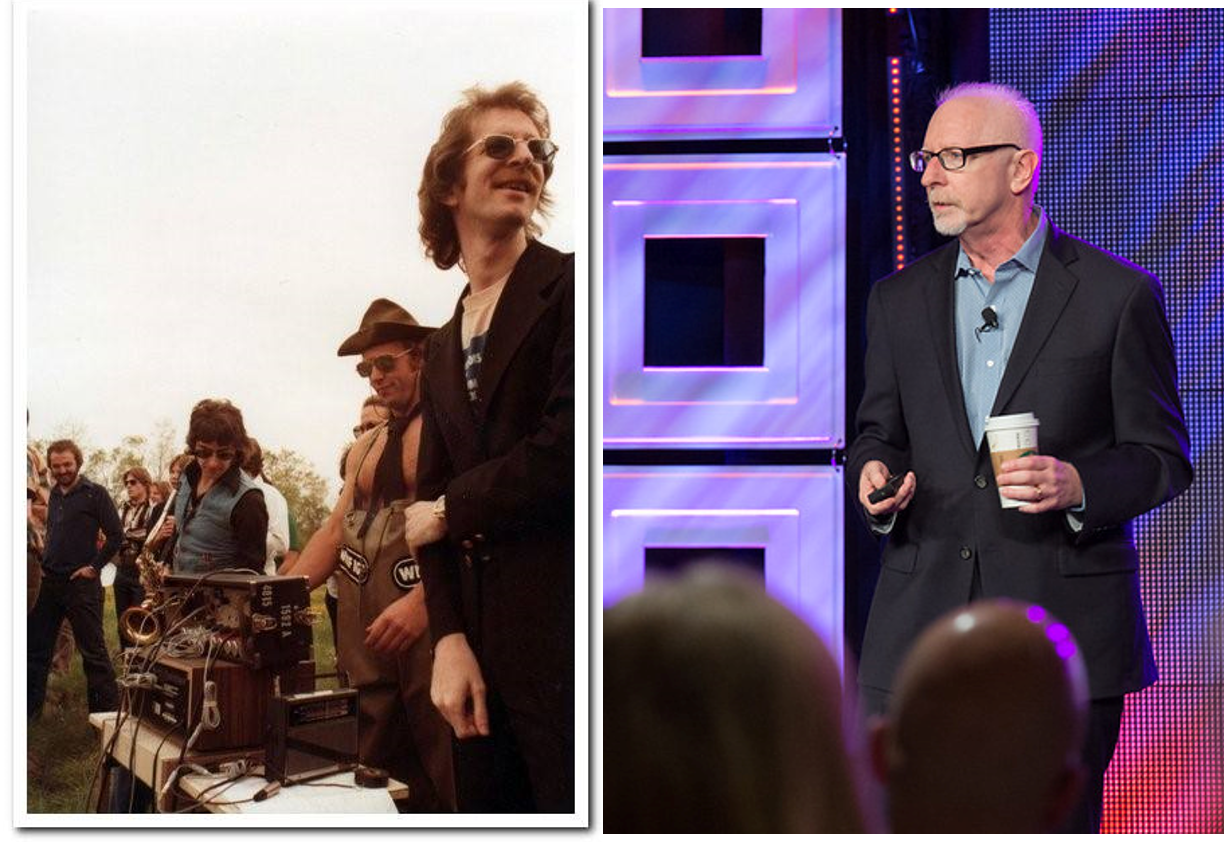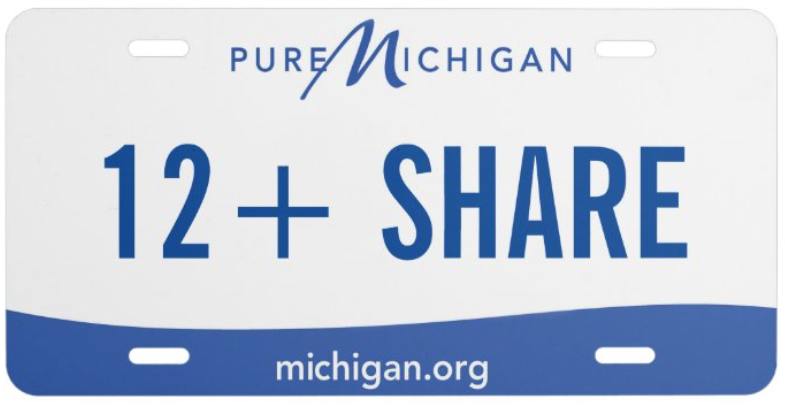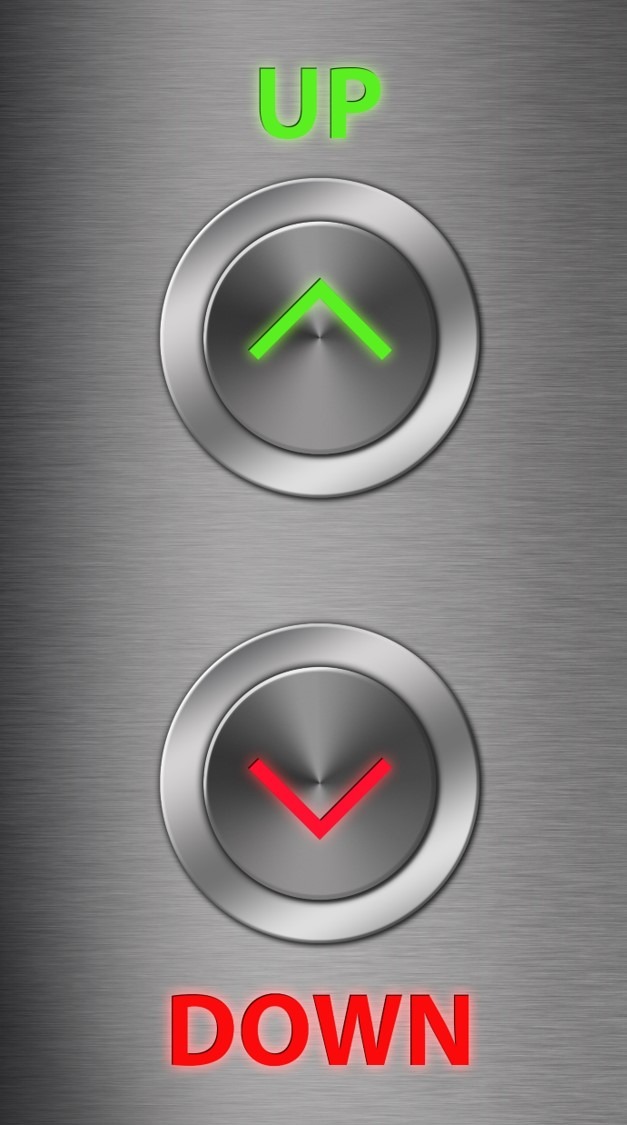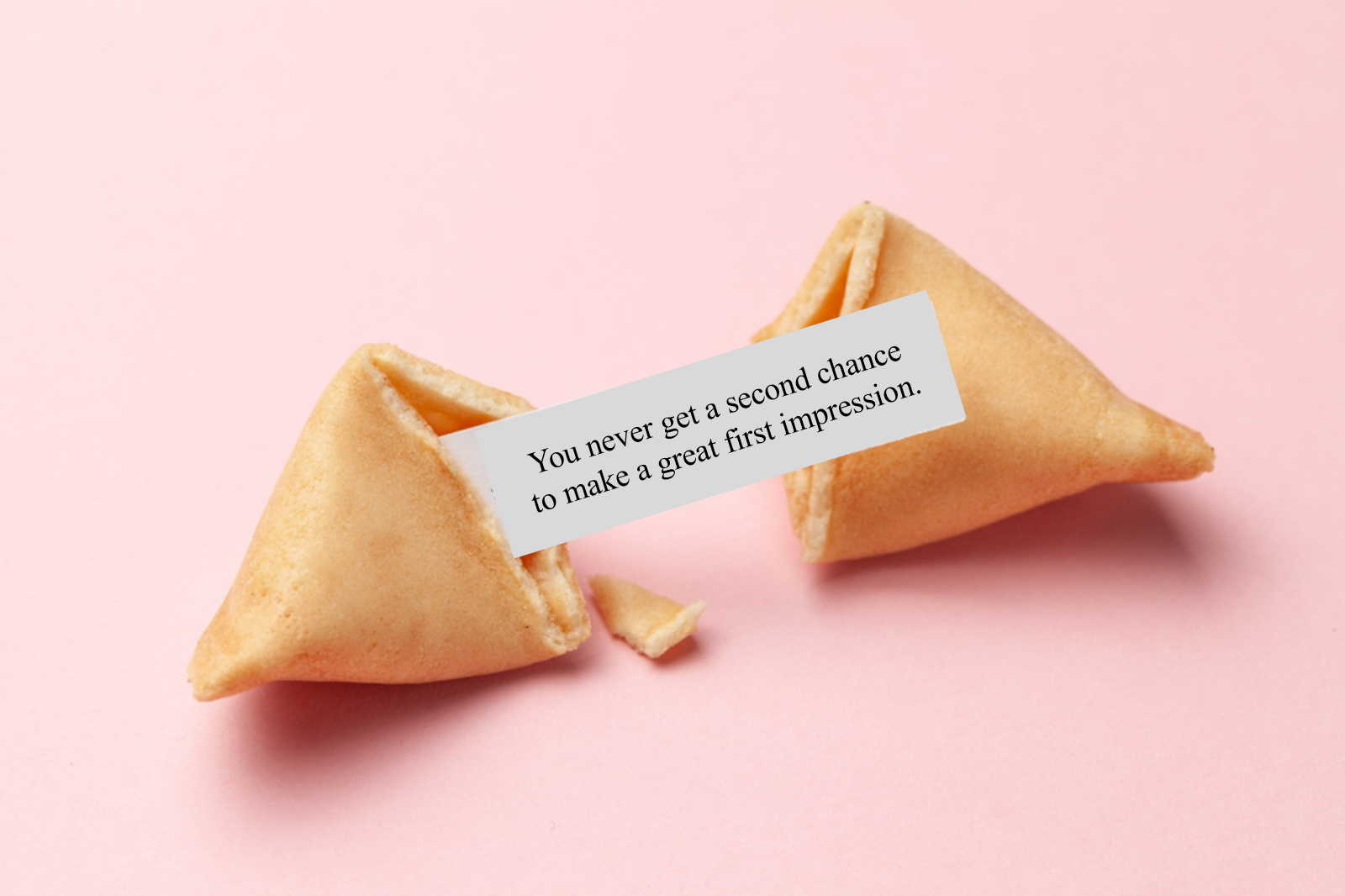
Yesterday was an interesting one. I spent the day at Forecast 2025 in New York City. It was my second time at this august conference, held at the iconic Harvard Club in Midtown Manhattan.
There’s always a hint of nostalgia at this event, and yesterday was no exception. The day before, two industry friends – Steve Jones of Skyview Networks and Mike McVay were named “Giants of Broadcasting.” And in fact, both nicely fit the bill. And at yesterday’s lunch, the great Erica Farber was presented Radio Ink’s Lifetime Achievement Award.
Honorees thoughtfully looked back at their prestigious awards – something you’re supposed to do at moments like this. And so when I ran across this blog post, published exactly three years ago, it felt right to make it today’s #TBT Thursday entry. The original post elicited a lot of comments – and emotions – when it first ran, so I hope the same things happen again. It’s healthy to look back on your career and analyze what you’ve learned along the way. If it conjures up a few of those memories for you, then it’s done its job. – FJ
November 2021
No matter how long you’ve worked in radio, and how old you are, I’ll bet you still have vivid memories of your early days in the business. You may struggle to recall what you ate for dinner last night or who you Zoomed with last Tuesday. But you most definitely recall the moment when you got that first job in radio, someone taught you the fundamentals of the craft, that time you were fired (OK, maybe there were more than one of these), your best ratings book, and sadly, your worst one.
The thing you’ve hopefully gained along the way is perspective. You may not be any smarter or even more skilled – hopefully, you’re both – but are you dealing with it better now? Imagine how valuable it would have been if “future you” (the person you are today) could sit down and have a frank chat with “early radio you ” and provide advice. After all, nobody knows that green, inexperienced radio beginner better than the more mature, modern-day version of the person you’ve become.
Last week I was reading a tweet from Vala Afshar, Chief Digital Evangelist for Salesforce (and a great follow on Twitter). Vala listed out the bullet point advice he would have loved to have dispensed to his younger self. And I started to wonder what that would look like if it were focused on radio.
would have loved to have dispensed to his younger self. And I started to wonder what that would look like if it were focused on radio.
So, I made a list – for me, not necessarily for you. But if there are nuggets of wisdom, or more likely, common sense in my efforts, all the better. It turned out there are SO many things the sophisticated, experienced, time-tested Fred Jacobs 0f 2021 would like to tell that neophyte, well-meaning but naïve Fred Jacobs at Michigan State in 1973, it took me just a few minutes to create my list. I have a feeling yours would come quickly, too.
The thing is, that old version of you probably isn’t a whole lot different from the latest model. There are likely some physical differences (note the photo above), but the core of who you are doesn’t change all that much. The decades shape you, perhaps sanding down some of your rougher edges. You wise up, not as easily fooled by the promises or the fantasies.
You are who you are. But perhaps you might have avoided a sand trap or two with better counsel – from the latter-day you.
But this blog post goes nowhere if it’s just “today Fred” talking to “MSU Fred.” Use the “comments” section below to add a piece of advice (or two) you could now impart to the you of radio past. Or join me on Facebook or Twitter where I’ll pose the same questions.
Below is my list – in no particular order:
1. You are not your 12+ share – I cribbed this from Vala’s list (“You are not your job”). For many of us in radio, there’s that tendency to wear our numbers creating, depression, or frustration depending on how the ratings gods treat you in any given week, month, or quarter.
depression, or frustration depending on how the ratings gods treat you in any given week, month, or quarter.
This is a bad habit to get into, and an even harder one to break. But if you’re going to have a nice, long run in radio, this is advice worth heeding.
2. You didn’t get stupid overnight – This one’s a corollary to #1. You don’t get brilliant with a great ratings book. Nor do you lose your instincts, your smarts, and your intelligence with a down book (or three).
your instincts, your smarts, and your intelligence with a down book (or three).
But the industry can be reactive – quick to reward great performances, but also quick on the trigger when things go a bit south. The phrase, “You’re only as good as your last book” has been around longer than me.
We all know people whose luck – both good and bad – overshadow their skill sets. “Them’s the breaks,” as they say. The ratings don’t necessarily reflect the IQ of the PD. The most successful programmers will admit the role luck has played in their journey to the winner’s circle.
Keeping a balance – not overreacting to the successes or to the setbacks is the best way to keep yourself in check. And to also help you manage up and down – those who you report to and those who report to you.
3. Lose those grudges – It is very easy to have a long memory for whoever screwed you along the way. There may even be reasons you’ll never know. Or maybe not. But how long do you want to carry the baggage of being pissed off about someone who wronged you a decade or more ago?
not. But how long do you want to carry the baggage of being pissed off about someone who wronged you a decade or more ago?
Remaining resentful and even angry is a weight that only you bear, the residuals of a relationship you can’t get over.
I’ve learned the other player (the “grudgee”) in your drama may not even realize you’re still steamed, still telling the story to anyone who will listen, and still letting it mess you up in your current and future transactions. Let it go.
4. Everyone counts – It is so easy to breeze past people along your fast track to success – the intern who idolizes you, the listener who just wants to introduce herself, the night janitor, the new guy on the sales team. The longer you do this, the more you end up working for some of these people. How you treated them in the past is not forgotten.
to introduce herself, the night janitor, the new guy on the sales team. The longer you do this, the more you end up working for some of these people. How you treated them in the past is not forgotten.
But beyond the practical reasons to be nice to everyone – no matter where they are on the flow chart of life – is the satisfaction you get from making others smile, thanking them for what they do, and appreciating them.
 5. Learn from everyone – On a somewhat related note, there are insights, lessons, and skills to be had from anyone you encounter – if you’re open to receiving it.
5. Learn from everyone – On a somewhat related note, there are insights, lessons, and skills to be had from anyone you encounter – if you’re open to receiving it.
Everyone has a story. And in fact an icebreaker question I often ask when meeting anyone is this: “So, how did you end up in radio?”
And the answer is always different, often fascinating, and occasionally insightful. Plus, people love to talk about themselves, so it’s the perfect question to start a relationship with.
Since I’ve started writing this blog back in 2005 and in need of a lot of material, I have become a better listener and interviewer. I ask better questions, and I have a keener understanding that I don’t know it all, and in fact, have a lot to learn.
Sure, it’s a bit humbling, but it’s also joyful to pick up a gem or two from someone you least expect to learn something from. Whether they drive an Uber, make your latté, schedule your music, or sign your paycheck, there are things they know you don’t know.
6. Work for good people – This is sadly not as easy or as obvious as it sounds. But chances are your career arc has been greatly influenced by your employer(s).  Not all great companies are owned by good people. If you can manage to earn your living working for people who take an interest in you, educate and nurture you, and want you to succeed, do it. It’s often not that hard to prioritize this when you’re job hunting. Believe me when I tell you that far more important that market size or the weather is who you work for.
Not all great companies are owned by good people. If you can manage to earn your living working for people who take an interest in you, educate and nurture you, and want you to succeed, do it. It’s often not that hard to prioritize this when you’re job hunting. Believe me when I tell you that far more important that market size or the weather is who you work for.
Before I started Jacobs Media, I was blessed to work for two of the best companies in their respective fields – Frank N. Magid & Associates (a research company in Marion, Iowa) and ABC Radio. I learned valuable lessons from brilliant people at each stop that enabled my entrepreneurial successes.
7. Get that degree – Too many in radio believed back in their youth that great skills would paper over their other shortcomings – like their higher education. But the books you don’t read, the essays you never wrote, and the social experiences you never had can eventually take their toll on your experience and capabilities.
the books you don’t read, the essays you never wrote, and the social experiences you never had can eventually take their toll on your experience and capabilities.
I realize – especially these days – that a college degree is not for everyone. But so many of the skills you need if management, ownership, and other lofty goals are on your “wish list,” often bloom from the lessons that come from a great education.
Your degree isn’t just about what you majored in. It’s proof positive you have the self-discipline to complete the program, and that you’ve learned how to learn.
I am always amazed by some of the little things from my college days that echo loudly years and even decades later.
8. First impressions matter – Especially in a new job, the tone you set in your first 90 days is the one that will follow you through your time on that job.
a new job, the tone you set in your first 90 days is the one that will follow you through your time on that job.
In the early days, listen intently, don’t rush to conclusions, don’t fall into bad relationships, and work your ass off. It is very hard to turn around the attitudes of those who report to you and those you report to when you get off on a bad start.
And whatever you do, don’t talk about what you did in your last job – whether it was in Philly or Pensacola. No one cares, and your new colleagues will conclude your head is still stuck in your last market.
9. If you’re the smartest person in the room, find a smarter room (or smarter people) – While you can and should learn from everyone (#5), surrounding yourself with truly great people – especially those who know about things you don’t know – can make you more learned and more successful.
surrounding yourself with truly great people – especially those who know about things you don’t know – can make you more learned and more successful.
But when your team is comprised of those who aren’t as talented or wise as you, there’s not a lot of room for you to grow.
Some enjoy bossing others around, but the truly skilled defer to the experts, the pros, and others with insights they lack.
Much of my career success has come down to hiring to my weaknesses – bringing in people smarter than me in areas where I have few skills or little interest. And then letting them do what they do.
10. It’s better to fade away than burn out – With apologies to Neil Young, we’re seeing a lot of this now – many people voluntarily packing a box or two, and calling it quits. The 24/7/365 nature of the business can exact a toll on people.
calling it quits. The 24/7/365 nature of the business can exact a toll on people.
For many, what began as hard work turns out to be workaholicism. I’ve been there and done that – more than once. And it’s a tough road. My advice to young radio Fred? Pace yourself.
Everyone’s exit strategy is going to be different, sometimes dependent on who makes the call. But making sure your relationships, your life, and your finances are intact – or better yet, good – is something most of us can control.
11. Pay it forward – Or give back. Whether it’s volunteering at your local food bank, speaking to high schools, or giving your time, experience, or celebrity to groups that need it, this is part of the circle of career life.
groups that need it, this is part of the circle of career life.
And when you’re doing good, good things often happen. As a PD, I loved staging fundraisers where we could combine entertainment for the audience with funds for deserving organizations.
At ABC in those days, we weren’t allowed to profit from station events, like concerts or festivals.
Some of my proudest moments were writing that big check to the Detroit Zoo or public radio station WDET-FM which was on the financial ropes at the time. It was rewarding.
Any time your powerful local brand or your position allows you to help others in need – especially in your community, it’s a rush. It’s a feel-good moment for the staff (and you), and it leaves you with a good feeling about why you do what you do.
Make your own list. And then look at it and realize how much wisdom you’ve accumulated over the years. In some ways, it may be a little late for the “today you” to benefit from the lessons learned by “early radio you.” But even if that’s the case, there are many twentysomethings in radio who just might read this post, and pick up a few pointers from your old self.
Use the “comments” section below to give me a piece of advice or two that would have helped that younger version of you.
Or comment on Facebook, LinkedIn, and now Bluesky at @fnjacobs.
- For Radio, Where Does Digital Revenue Go From Here? - June 6, 2025
- “My Favorite Decade Of Music Is The __’s” - June 5, 2025
- Who’s Got It Better? Talent In Commercial Radio vs. Talent in Christian Music Radio - June 4, 2025





It shames and saddens me to say this, but my younger self was a cocky arrogant little twerp who wouldn’t listen to a thing I had come back to tell him.
I’m not carrying a #3 Grudge over this. But I’d instead go back and share my advice with *his friends*. At least they’d listen.
When you look back – and you’re honest with yourself – you see those flaws much more clearly. Somehow, you (hopefully) figure it out.
What advice would I give to my younger self? WOW! Let’s see here –
First, if you really want to get in the radio business, you MUST believe you can succeed and overcome all obstacles placed your way.
People will try to get in your way. They’re called Program Directors, Managers, Consultants or even worse “National” Program Directors. (Yes I had one of THOSE get in my way…a man who wanted a job in New York City once and failed. He went back to smaller markets and was a tyrant for a group I once worked for.)
Do not step ON people on your way up the ladder. They’ll remember that not so kind act.
Remember that kid at 17 with the squeaky, untrained voice may actually bloom to be a real personality someday.
We are supposed to be entertainers…so entertain! Never “call it in”. If you don’t feel well, call in sick.
If you’re looking out of the studio window and see a youngster sitting in the office watching you, take that kid a spare donut. It happened to me in 1967. I would many years later be an on-air colleague of that man.
Don’t fear consultants. They don’t exist to fire you. Work with them and one day, you might surprise yourself from where you are.
Dream big. If you can dream it, you can do it.
Don’t be afraid to fail. You will. I know a guy who did. He sold Fuller Brushes. Failed. Sold encyclopedias. Failed. Got in a band, did a little better, but realized that life wasn’t for him. What did he do next? Wanted to be in radio. Did Bill Purser fail? Nope. His talent doing voices and creating characters made his own character…Gary Burbank…become a national Marconi winner twice, I think.
Find your mentors. I had three and I learned from every single one of them.
Don’t be afraid to ask for help when you need it.
Failing doesn’t mean you’re a loser. You just missed the mark that day. Resolve to do better and hit your mark the next time.
People like us were made to do what we do. And believe that nobody can do it better than you.
Become a student of the business. But don’t let the business overwhelm you.
You never know who’s listening or who you’ve influenced. A kid who heard me on my high school radio station in 1974 thought I was having such a good time that he wanted to try it. I won’t tell you his name. But, I’ll tell you he’s a PD for a very big station in New York now. When I got an e-mail from him one morning at work, I sat at my desk and cried for 20 minutes.
Survive all of this, and you’ll wake up one day and realize you like those old timer luncheons.
Says an over 50 year radio guy who is semi-retiring at year’s end and still hasn’t gotten it out of my blood. I’m inducted into a local broadcaster’s Hall of Fame, helped a station win a Marconi once (and still have the mini Marconi here at the house). Won AP and SPJ awards for doing breaking news coverage.
And I spent 39 years in one market. My hometown. Dayton, Ohio.
Good luck, youngster.
Oh yeah. If anyone wants a good voice tracker…
Kevin, this is brilliant – so well-written and from the heart. I so appreciate you (and many others) enhancing and imrpoving on what I posted.
Well…to keep it PPM…I owe you Fred a lifetime Starbucks card & The Dan Mason of CBS Radio a pony 😉
I appreciate it, Tim.
…I would have told “me” to get your Bachelors & find a real job. But “me” probably would argue the “Great” job was where I was, McCarthy Broadcasting, KMAK & KBOS Fresno, California. December 15, 1983.
My advice to “me” the Bookkeeper/BusinessManager:
Get your Bachelors anyway. Learn everything you can, this industry will change big time in 1995.
Stay away from the bar promotions. Your real life is at home.
Contribute the max to every 401(k) available to you & never touch it.
Network, network, NETWORK!
Save those Angel Flight slacks, they will be a great Laugh for Life!!
Take pics, lots of pics. Not everyone will make it as long as you will.
Meet Jesus sooner, He will make it all easier & worth the time spent with the Tyrant owners & Bosses, cheating salespeople, egotistic DJs & insane vendors. You see, Jesus loves them too.
These chains of advice are so personal and interesting. Thanks for contributing yours.
Say yes, when others say no. Make yourself available to take on the tasks others feel are a burden or they’re above.
Learn a little bit about a lot of things.
Know how to do more than one thing at the station. Don’t be a one trick pony. Adjust with the times and embrace the future.
And when taking phone calls remember, they never look like they sound. lol.
Uncle Buck, good stuff (especially the last one!).
1). These ARE the days. Enjoy them while you can, it won’t last. 2). If you want to really move up, you’ll have to change companies to do it–it’s a boys club. 3). Work hard. No…harder than that….and be irreplaceble. 4). Be a fan and an ambassador of your brands! 5). If Curtiss Johnson offers you a job, take it at any expense. 6). Pass on what he taught you about broadcasting and management. 7). Don’t give up, keep trying, keep sending out those cassette tapes! 😎. One day you’ll look up and Guns ‘n’ Roses will be sitting across from you in the studio (Simon Says, Linkin’ Park, Oleander, Creed, Sevendust, etc…….) 9). Really, NOTHING goes on backstage, get over it. 10). It’s a wild fucking ride!! Have a great time!!
I love this, Kylee. Thanks for sharing your advice (especially the Curtiss Johnson part).
My advice to a younger me is just be patient. Keep working as best you can and don’t worry about the side jpbs you’ll have to take to survive. They will build your character. Continue to ignore your parents who are convinced you won’t make it in radio and continue to use your best judgement as to which gigs to take and which to walk away from. Never be discouraged, because the job that sucked you probably didn’t want in the first place. Continue to respect the people who manage you because they apparently, believe in you and you’ll realize they were your mentors who helped to shape who you will become. Those who were slave-drivers deserve to be forgotten. They weren’t happy people to begin with. Don’t lose touch with the people you worked with. The best gigs always come from people you already know and even if they don’t result in work, they will always bring positive vibes into your life.
This is truly sage advice. Thanks for imparting it to young broadcasters who reaad our blog.